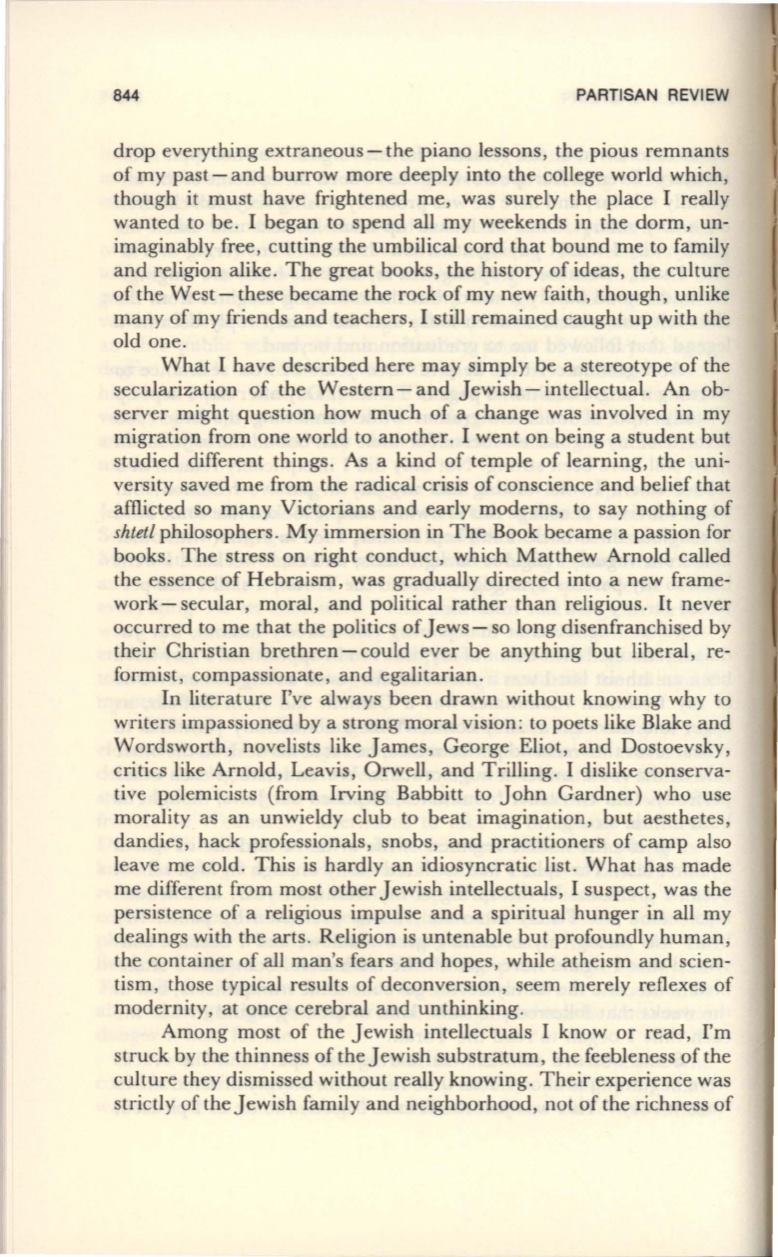
844
PARTISAN REVIEW
drop everything extraneous- the piano lessons, the pious remnants
of my past- and burrow more deeply into the college world which,
though it must have frightened me, was surely the place I really
wanted to be. I began to spend all my weekends in the dorm, un–
imaginably free, cutting the umbilical cord that bound me to family
and religion alike. The great books, the history of ideas, the culture
of the West-these became the rock of my new faith, though, unlike
many of my friends and teachers, I still remained caught up with the
old one.
What I have described here may simply be a stereotype of the
secularization of the Western- and Jewish- intellectual. An ob–
server might question how much of a change was involved in my
migration from one world to another. I went on being a student but
studied different things. As a kind of temple of learning, the uni–
versity saved me from the radical crisis of conscience and belief that
afflicted so many Victorians and early moderns, to say nothing of
shtetl
philosophers. My immersion in The Book became a passion for
books. The stress on right conduct, which Matthew Arnold called
the essence of Hebraism, was gradually directed into a new frame–
work- secular, moral, and political rather than religious. It never
occurred to me that the politics ofJews- so long disenfranchised by
their Christian brethren- could ever be anything but liberal, re–
formist, compassionate, and egalitarian.
In literature I've always been drawn without knowing why to
writers impassioned by a strong moral vision: to poets like Blake and
Wordsworth, novelists like James, George Eliot, and Dostoevsky,
critics like Arnold, Leavis, Orwell, and Trilling. I dislike conserva–
tive polemicists (from Irving Babbitt to John Gardner) who use
morality as an unwieldy club to beat imagination, but aesthetes,
dandies, hack professionals, snobs, and practitioners of camp also
leave me cold. This is hardly an idiosyncratic list. What has made
me different from most other Jewish intellectuals, I suspect, was the
persistence of a religious impulse and a spiritual hunger in all my
dealings with the arts. Religion is untenable but profoundly human,
the container of all man's fears and hopes, while atheism and scien–
tism, those typical results of deconversion, seem merely reflexes of
modernity, at once cerebral and unthinking.
Among most of the Jewish intellectuals I know or read, I'm
struck by the thinness of the Jewish substratum, the feebleness of the
culture they dismissed without really knowing. Their experience was
strictly of the Jewish family and neighborhood, not of the richness of


